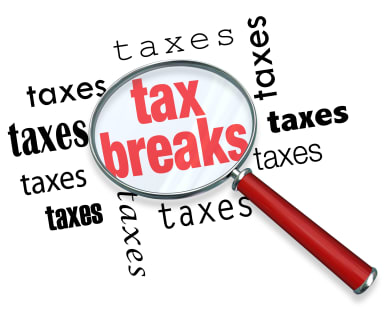Note: This article is about a bill that was introduced in 1999.
Senator Ernest “Fritz” Hollings (D-SC) has introduced a bill that would place a 5 percent national sales tax on Internet sales and other mail order and catalog sales that are not now subject to sales taxes.
The bill, entitled the Sales Tax Safety Net and Teacher Funding Act, (S1433) targets companies that, under rulings by the US Supreme Court, are not required to pay local sales taxes. Such transactions include out -of-state sales where the seller does not have a physical presence (nexus) in the customer’s state.
The Treasury Department would, under the Hollings bill, be responsible for setting up a program that would distribute the money to states as grants to be used for funding for compensation and benefits payable to elementary and secondary school teachers.
The tax would be ” imposed on the first retail sale of merchandise effected via the Internet, by mail order through a catalog, or by direct sales other than through a local merchant.” There would be a tax credit up to the amount of the local sales tax collected for in-state Internet and mail order sales up to a maximum of the 5% national tax. However if the state and local taxes were less than 5% the merchant would still need to collect the full 5% national tax, remitting the difference between the state and local taxes to the US Treasury Department.
The Association of Online Professionals (http://www.aop.org) has issued an alert to its members saying the bill “is intended to derail the more reasonable study of Internet taxation by the National Advisory Commission on Electronic Commerce, an industry/government effort that began earlier this year. The commission has been bitterly opposed by tax authorities anxious to impose a heavier tax burden on the Internet at the state and local levels.”
According to Dave McClure, executive director of the AOP, “The bill is based on the incorrect premise that electronic commerce is in some way reducing the revenues to state and local governments. In reality, those taxing authorities are enjoying their highest tax collections in decades thanks to the healthy economy. Further, the bill assumes that no sales taxes are being imposed on e-commerce, when in fact 42 states already have sales taxes on e-commerce. “
Individuals wishing to voice their thoughts about the bill can do so by contacting Senator Hollings at:
The Honorable Ernest Hollings
Senator for South Carolina
125 Senate Russell Office Building
Washington, DC 20510-4002
Phone: (202) 224-6121
Fax: (202) 224-4293
Email: senator@hollings.senate.gov
Tax Information and Resources
-
Tax Tips For The Self Employed
-
3 Common Tax Problems You Can Fix
-
6 Tax Hacks For SMB Owners
-
Avoid Tax Time Frustrations
-
7 Tax Planning Myths
-
6 Tax Hacks For SMB
-
How To Sell Your Business
-
LLC Tax Filing Deadline
-
Self Employed Tax Mistakes
-
IRS W-4
-
Self Employed Tax Deductions
-
Filing Partnership taxes
-
Quarterly and Annual Tax Filing
-
Track Tax Deductible Expenses
-
Home Business Tax Breaks
-
Single Member LLC Taxes
-
Tax Write-Offs for an LLC
-
End of Year Tax Strategies
-
TINs and 1099s
-
Taxes As An Artist
-
Compare the Benefits of Inc vs LLC Taxes
-
Choosing LLC Fiscal Year
-
Self Employed Quarterly Tax Filing
-
Payroll Tax Guide
-
Vehicle Tax Deduction
-
Guide to EIN Numbers
-
Independent Contractors
-
Difference 401k & 401a
-
Deduct Start Up Expenses
-
Tax Credits As Revenue for Your Business
-
Calculate Sales Tax
-
SMB Tax Deductions
-
Tax Deductions For Purchasing Artwork
-
What is Franchise Tax
-
California Franchise Tax Board Fee
-
Income Tax Liability: What You Need to Know
-
Top 19 Tax Deductions
-
Fed and State Tax ID Numbers
-
Abusive Tax Shelter Info
-
State Business Taxes
-
Helpful Tax Tips
-
Avoid Capital Gains Tax on Stock Sales
-
Small Business Tax Basics
-
What Does an SMB Pay in Taxes
-
Tax Information for LLC's
-
50 Tax Deductions Not to Miss
-
Sales Tax Nexus Explained
-
National Internet Sales Tax Bill
-
What is a W9
-
Small Business Federal Taxes
-
How are LLCs Taxed?
-
Can I Deduct My Hobby?
-
Owing the IRS 6 Tips
-
How to File Taxes for LLC
-
Avoid Triggering an IRS Audit
-
Don't Forget These Deductions
-
W2 Prep & Reading
-
Home Office Deductions
-
Business Tax Refund
-
File for a Tax Extension
-
Home Business Tax Deductions
-
K1 Tax Forms
-
Tax ID Numbers





